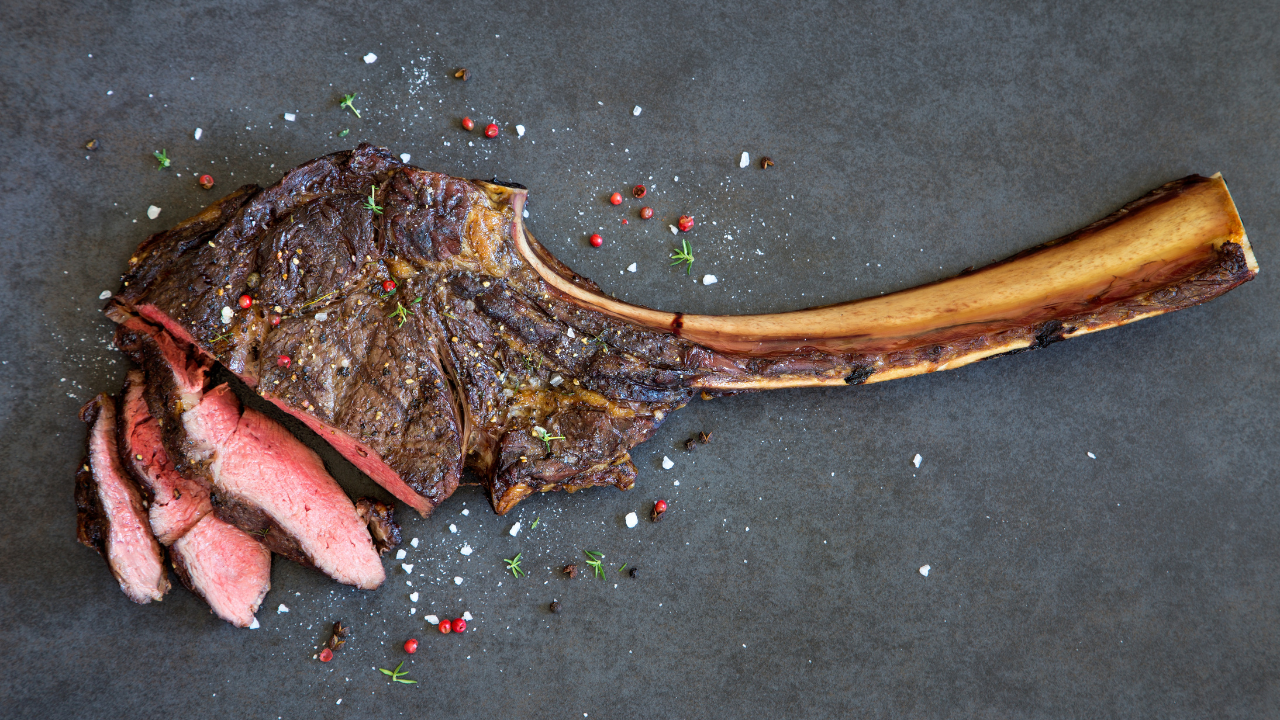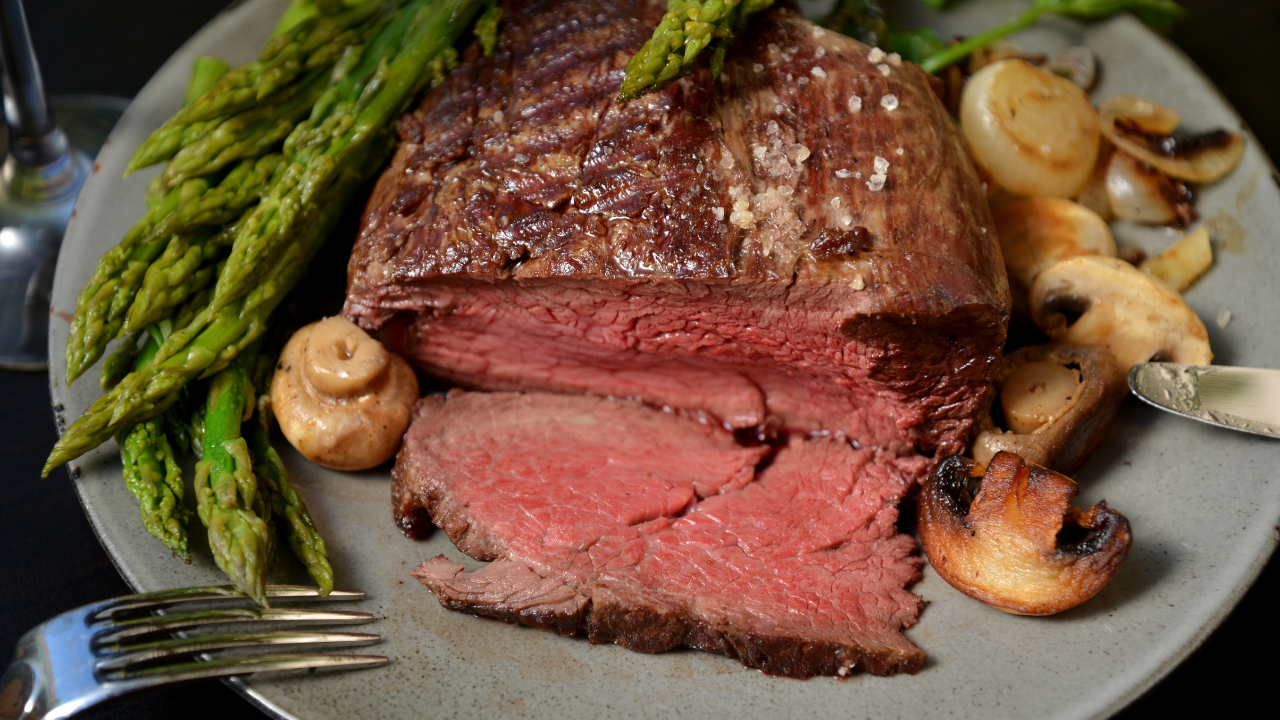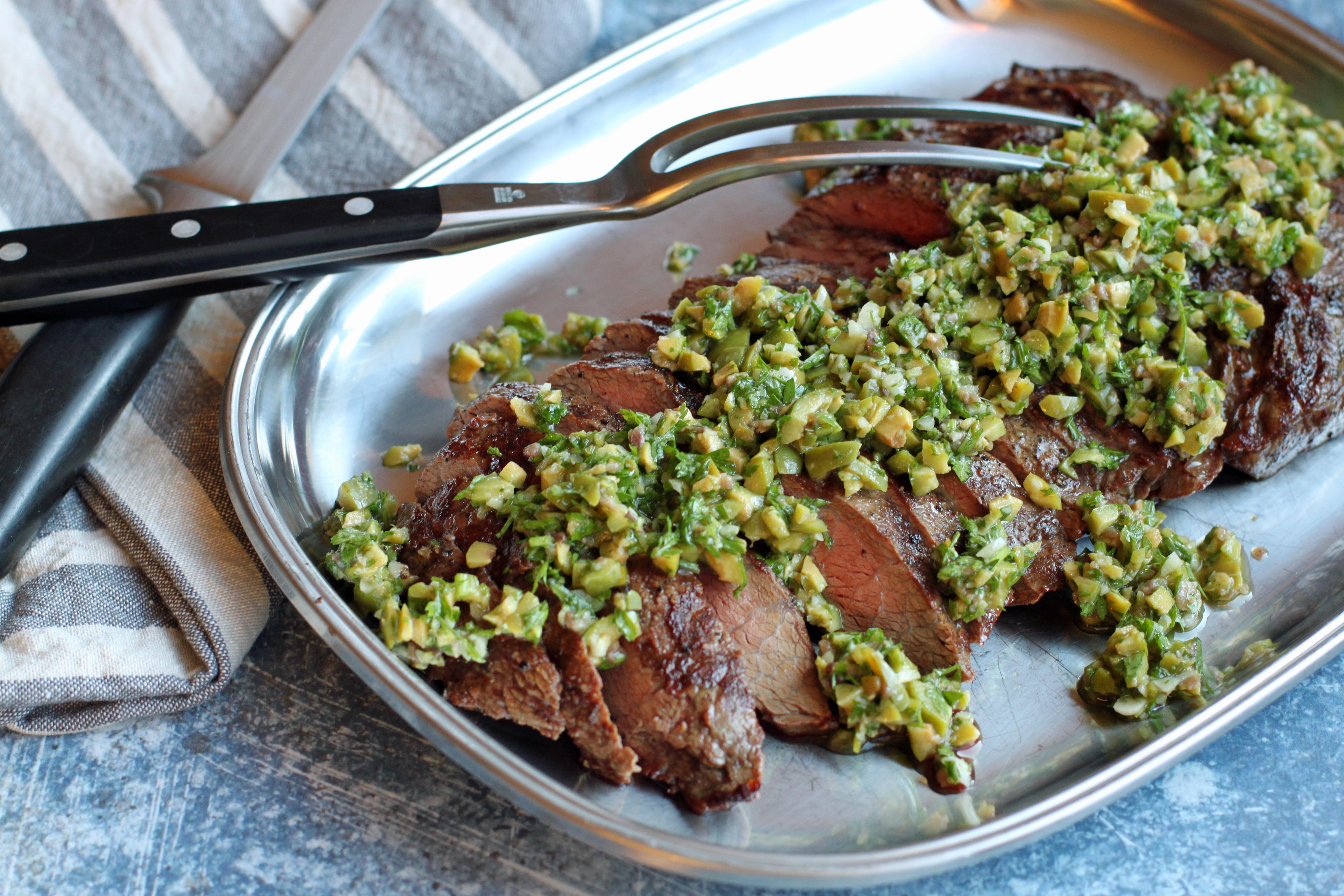Beef: Is it Thyroid-healthy?

Is Beef Thyroid-Healthy? Let’s Break It Down.
As Thyroid Thrivers, getting enough high-quality protein is one of the best things we can do to support our energy, metabolism, and overall well-being. And when it comes to protein, beef is one of the most bioavailable and nutrient-dense sources out there.
But is it thyroid-healthy? What kind of beef is best—grass-fed or grain-fed? And how do we make sense of all the conflicting advice about red meat, inflammation, and chronic disease risk?
In this article—and in Episode #81 of the Thyroid-Healthy Bites podcast—we’re diving into the science, sourcing, and smart choices around beef for thyroid health. Whether you’re navigating Hashimoto’s, hypothyroidism, or just aiming to eat better, you’ll come away with practical, evidence-based insights you can trust.
In this episode/post, we’ll explore:
- Whether beef is a thyroid-healthy food
- The difference between grass-fed and grain-fed beef
- Which kind of beef is recommended for Thyroid Thrivers and why
- Tips for sourcing the most thyroid-friendly, nutrient-rich beef
Disclaimer: This information is for educational and inspirational purposes only. Always consult with your doctor or other qualified healthcare providers before making changes to your diet, health care, or exercise regimen. Affiliate disclosure: Some of the links in this post may be affiliate links. As an Amazon Associate, I earn from qualifying purchases. Purchasing a product using one of these links will support my work at no additional cost to you. Please know that any product recommendations I share here are my own.
Podcast Links:
- Listen on the podcast page
- Listen / Subscribe on iTunes
- Listen / Follow on Spotify
- Watch / Subscribe on YouTube
- Listen / Subscribe on Amazon Music
First, Let's Bust Some Myths About Beef
Beef, in general, gets somewhat vilified in the mainstream nutrition and medical media for contributing to heart disease, causing cancer, and being an inflammatory food. Some medical experts warn us against eating red meat, and then some refute that recommendation. Both sides back up their claims with scientific research.
One of the most pervasive beliefs about beef is that its high saturated fat content can raise our cholesterol and contribute to cardiovascular disease, but a 2010 meta-analysis concluded that there is no scientific evidence linking saturated fat consumption to an increased risk of cardiovascular disease.
Ancestral nutrition researchers like Chris Kresser have pointed out that a high-sugar/high-carb diet is much more influential on our likelihood of developing cardiovascular disease. Eating cholesterol and saturated fat does not raise our cholesterol levels in the blood, he reports, citing numerous studies that disprove this belief, as well as the belief that high cholesterol in the blood is the cause of heart disease. Research shows that the combination of refined carbs and saturated fat is a much more significant factor for cardiovascular disease.
Dr. Sarah Ballantyne, another ancestral nutrition expert and medical biophysicist, points out that additional factors in the diet, like vegetable consumption, can mitigate the risks associated with beef consumption.
Kresser has also cited insufficient and inconsistent evidence surrounding claims about beef contributing to colorectal cancer and heart disease.
While nutrition experts may disagree on exactly how much beef (or saturated fat) is ideal in the diet, there is growing consensus that nutritionally speaking, beef is not the villain we once thought it was.
Is Beef Thyroid Healthy?
Getting the nutrients we need can be a major factor in helping us feel our best and helping our bodies utilize our thyroid medication. One of the biggest highlights of beef for Thyroid Thrivers is that it is a highly bioavailable source of several key thyroid-supporting nutrients.
Thyroid-supporting nutrients in a 3.5-ounce serving of beef:
- Protein: 26 grams
- Vitamin B12: 101% of the daily value (DV)
- Vitamin B6: 17% DV
- Iron: 13% DV
- Zinc: 43% DV
- Selenium: 31% DV
- Tyrosine: 144% of the recommended daily intake (RDI)
Each of these nutrients, in some way, has a direct or indirect impact on our thyroid function, including thyroid hormone production, conversion, and synthesis.
One of the thyroid-healthy highlights of beef is that it is a highly bio-available source of protein, and protein is a key part of any Thyroid Thriver's diet. Not getting enough of this crucial macronutrient can suppress the thyroid gland, leading to hypothyroidism.
Aside from directly impacting thyroid function, there are several other reasons why protein is of extra importance for Thyroid Thrivers:
- Most of us with hypothyroidism benefit from prioritizing protein in our diets and ensuring we get enough protein and consume it with every meal and snack.
- We have increased demands for "repair" to our skin, hair, nails, and other tissues.
- We are prone to hypothyroid myopathy or muscle weakness.
- For the throngs of us watching our waistlines, protein helps us feel satisfied, reducing cravings and even boosting our metabolism.
- Protein contributes to our ability to convert inactive T4 thyroid hormone into active T3.
With so much protein, plus key thyroid-supporting nutrients, there's a lot to like about beef, but like any food, how much we consume and how that food is produced makes a difference in just how "thyroid-healthy" that food may be. Let's explore the differences between grain-fed and grass-fed beef and why the latter is so often recommended for us as Thyroid Thrivers.
Further Reading: Picking the Perfect Protein Powder

Grass-fed vs. Grain-fed Beef: What's the difference?
Grass is a cow's primary natural diet. All cows eat grass for the first part of their lives, but when they reach the stage of being ready for processing, typically around one year of age, there is a fork in the road. Which fork these cows take determines whether they are sold as "grass-fed" or regular beef. Some cows are finished with grain, while some are not. It's this finishing process that produces a much different result in the product you put on your plate, both in terms of taste and nutrition.
Grain-fed (i.e., grain-finished) Beef is what most cows, especially in the realm of industrial beef processing, are. Prior to the grain-finishing process, cows spend their lives grazing on grass in pastures and are sometimes given additional hay (which is also grass). Grain-fed cows are sent to feedlots for the last 3-6 months of their lives, where they are fattened on a diet of grains consisting primarily of corn and soy.
Almost all the beef you buy at the store is grain-finished unless it says otherwise. It's the norm.
Grass-fed (i.e., grass-finished) Beef never goes to a feedlot. Instead, the cows graze on grass in pastures up until the time of slaughter. Grass-finished cows only eat grass and, of course, cow's milk when they're calves. The animals consume their natural diet in their natural environment for the duration of their lives.
Regarding beef, the terms grass-fed and grass-finished are used interchangeably. While "grass-fed" seems to be the more common term used in labeling, I prefer the term grass-finished because it's more accurate. All cows are grass-fed. It's the finishing process that differs. Nonetheless, consumers are more familiar with the term grass-fed to denote beef that has not been fattened on grain at a feedlot. I use both terms in this article.
Further Reading: How to Grill a Perfect Steak Every Time
Why Grass-Finished Beef is Recommended for Thyroid Thrivers
For anyone eating to heal, minimize inflammation, and optimize health and vitality, grass-finished beef is the beef of choice. Let's talk for just a minute about why the experts recommend this.
Grass-finished beef is higher in antioxidants and anti-inflammatory Omega 3s than its grain-finished counterpart. It also has lower amounts of overall fat and a healthier fatty acid profile. While there is currently much debate about just how nutritionally superior grass-fed beef is, it seems consistently clear that it beats its grain-fed competition.
Grain finishing makes beef fattier, which for the consumer means juicy, tender, easier-to-cook steaks. While it makes for a nicely-marbled steak, it also results in a nutritionally different, and some experts feel a nutritionally inferior product. While grain finishing may be economically beneficial for the people selling the beef, it's not ideal for the cows or the people eating them.
Cattle more easily become sick and diseased on feedlots and require more antibiotics to keep them healthy during this time. Confining ruminants this way is stressful on the cows, as is the rapid weight gain induced by a diet of grains. In the big picture, this industrial farming practice has been a major contributor to antibiotic resistance, which according to the WHO, is a major threat to human health.
One way to think about the difference between grass and grain-finished beef, or any animal protein source, is in the words of Dr. Mark Hyman, "We are what our meat eats." When factory-farmed animals are fed with pesticide-heavy GMO grains and other low-cost fillers like Skittles (no, I'm not kidding), and then injected with growth hormones and antibiotics, the end result is the steak on your plate. Side-by-side, a factory-farmed grain-finished steak vs. a pasture-raised, grass-finished steak, is going to produce a different end product. It's no surprise that grass-finished beef is considered superior for health.
This logic applies to most animal protein recommendations for Thyroid Thrivers: Grass-fed beef, bison, or wild game, as opposed to factory-farmed feedlot beef, pasture-raised pork or poultry as opposed to factory-farmed pork or poultry, wild-caught fish as opposed to farmed fish (although, some fish farms are better than others).
Bottom Line: If the goal is to maximize nutrition, minimize inflammation, and avoid toxins that can impact our thyroid function and overall health, grass-fed beef is where it's at.

Nutritional Differences of Grass-Fed Beef
Grass-fed beef is high on the list of thyroid-healthy foods, according to many leading thyroid experts. experts. Nutritionally speaking, the difference between grass-finished and grain-finished beef is significant. Simply put, grass-finished beef is leaner, more flavorful, and more nutritious beef. That’s why so many experts place emphasis on that “grass-fed” label for those of us who are eating to reduce the symptoms of chronic thyroid or autoimmune disease.
Grass-finished Beef has More:
- Omega-3s – Grass-fed beef contains up to five times more Omega-3s than conventionally raised beef. Omega-3s can help reduce inflammation in the body, as well as boost immunity.
- Vitamin E – Acts as an antioxidant, which helps protect your thyroid against free radicals. Grass-fed beef can have more than twice the amount of Vitamin E than grain-fed.
- Vitamin A and other antioxidants - Grass-fed beef has been shown to contain significantly higher amounts of Vitam A and other antioxidants. Vitamin A is needed to activate thyroid hormone receptors, and can also reduce inflammation.
- Conjugated Linoleic Acid (CLA) – Grass-fed beef contains twice as much CLA as grain-finished beef. CLA is a fatty acid associated with reducing body fat.
Grass-fed beef also features highly bioavailable forms of several key thyroid-supporting nutrients like B vitamins, iron, selenium, and zinc. To be fair, all beef features many of these nutrients, but grass-finished beef does not come with as many negatives.
"Conventionally-raised meats...are almost always loaded with growth hormone and steroids that can affect thyroid function and create a toxic burden on the liver," says Dr. Izabella Wentz.
While grass-fed beef does cost more, in this case, the price tag seems worth it. According to holistic nutritionist, Adrienne Klein, "You needn’t consume large amounts [of grass-fed beef] to get all the healthy benefits. Aim for adding it to your plate just one or two times per week, and you will be making a worthwhile investment in your thyroid-healthy diet."
Making the Switch to Grass-Fed Beef
Making the switch to grass-fed beef can take a little getting used to. The cost is higher, cooking it is a little different, and the taste is different. Grass-fed steaks are leaner than your typical grain-finished steaks, which means there's less room for error when cooking them because they don't have quite so much fat to rely on for moisture. This means it's important not to overcook grass-fed beef if you want it to be nice and juicy.
Grass-finished beef is also more flavorful. Some say it's "gamier" tasting, but having eaten a lot of wild game, "gamey" seems too strong a word. To me, grass-fed beef tastes cleaner, more natural, and more complex without the off-putting "feedlot" aromas I now notice in industrial feedlot beef.
Like fine cheese or wine, grass-finished beef has terroir, meaning the flavor reflects the grazing locations and conditions in which the cows were raised. Every ranch is unique, every cow is unique, and every growing season is unique.
As a family, we've been eating grass-finished beef for over ten years, about 1 or 2 times weekly. Several factors weigh in on our choice to eat grass-finished beef: Living where we do in Western Montana, wanting to support our local farms and ranches, prioritizing our grocery spending as a form of activism, my autoimmune disease, and our dedication to healthy food choices, and my husband's upbringing on a Wyoming cattle ranch, to name a few. We prefer the flavor of grass-finished beef and find factory-farmed beef to be either bland, excessively fatty, or unappealing. We don't feel as good after we eat it, nor do we feel as good about the welfare of the cows.
We're also lucky to have access to abundant good meat choices where we live. We can go to our local grocer and purchase grass-finished beef from half a dozen local ranches. We've gotten to know the beef from each ranch and have our favorites. To us, grass-fed beef is more than just a piece of meat on our plates. It's a health issue, a community issue, and a personal issue. The price feels worth it, and yes, we realize that choice is a privilege.
Easy access to grass-fed beef producers is a privilege not everyone shares, nor is the ability to choose this more expensive option. That's why Hypothyroid Chef is a judgment-free zone. The important thing is to do our best with the circumstances, resources, and options we have. While grass-fed beef may be the ideal choice, if it's not available in your budget (or your area), keep in mind that regular beef also features many key thyroid-supporting nutrients.
Further Reading: 10 Ways to Make Thyroid-healthy Eating More Affordable
How to Buy Grass-Fed Beef
There are several ways to purchase grass-fed beef.
At the grocery store: The simplest and the first place to look is at the grocery store. Check your local meat department to see what they stock as far as grass-fed beef options. Wholesale warehouses like Costco often stock grass-fed ground beef-- a versatile, budget-friendly option.
Local farms and ranches: Another good place to look is your local farms and ranches, including the small ones. This can be a great way to source grass-fed beef in bulk by purchasing it by the side (half) or quarter of the animal. How does it work? Contact the farm or ranch, place an order, and then (typically) they handle the butchering and packaging of the meat, sometimes through a local processor. You receive a box of several cuts of beef, including steaks, roasts, and ground beef.
We've taken this route several times with both beef and bison, and one thing I always request is that they include the bones for bone broth. A chest freezer is handy here, as your order may weigh over a hundred pounds.
How does one find local farmers and ranchers who sell their own beef? Word of mouth (including social media) is one way. Another is your local farmers' market, which can be a great way to connect, face to face, with the people growing your food, including beef. You can also search your local area on Local Harvest, a comprehensive directory connecting consumers to local food producers.
Subscription services: If locally-sourced grass-fed beef is unavailable in your neck of the woods, you can explore a subscription service like Butcher Box. They specialize in 100% grass-fed beef, free-range organic chicken, pork that's raised crate-free, and wild-caught seafood. They deliver the meat right to your door, packed and portioned.
Grass-fed Flat Iron Steak with Parsley, Garlic & Olive Relish
Thyroid-friendly Recipes Featuring Beef:
- Tri-tip Street Tacos with Grilled Pineapple & Onion
- Cranberry Cocktail Meatballs
- Thai Beef Salad
- French Beef
- Deluxe Burger Salad with Special Sauce
- Grilled Flat Iron Steak with Parsley, Garlic, & Olive Relish
Want Help Stocking Your Thyroid-Friendly Kitchen?
Download my FREE Thyroid-Friendly Grocery Guide to take the guesswork out of your next grocery run!
In Conclusion
As I submerged into the depths of research for this article, I learned that not only are the processing methods different that bring the beef from farm to plate, but the nutritional differences are significant enough that to say something accurate about beef requires that we provide some context regarding which type of beef we're talking about: grain-fed or grass-fed. Ultimately, I concluded that factory-farmed grain-fed beef and pasture-raised grass-fed beef are so different that they should almost be categorized as different foods.
When it comes to functional or holistic nutrition recommendations made for Thyroid Thrivers, grass-fed beef is indeed specified in most cases due to grass-fed beef being higher in anti-inflammatory nutrients. That said, both regular and grass-fed beef are real, whole foods, which are the foundation of thyroid-healthy eating.
While grass-fed beef may be nutritionally ideal, it may not be accessible or affordable for some. Knowing our ideal choices is helpful, and it's also important to avoid putting foods into the bad or good pile, inciting unnecessary food fear. Grain-fed beef may have less anti-inflammatory qualities and more environmental and ethical concerns, but it also provides several beneficial nutrients that can be part of a thyroid-healthy diet.
As always, the choice is up to you. I hope this article has given you the information you need to make the best choices for your health.
Wishing you the best of health,

P.S. Need more thyroid-friendly recipe inspiration? I’ve got you covered. My Thyroid-friendly Everyday eCookbook features over 50 quick and easy, thyroid-friendly recipes your whole family will love. To take a peek at what’s inside, CLICK HERE.
Sources:
- https://www.ncbi.nlm.nih.gov/pmc/articles/PMC2824152/
- https://pubmed.ncbi.nlm.nih.gov/21978979/
- https://www.pewtrusts.org/en/research-and-analysis/articles/2021/06/01/fda-must-end-unnecessary-long-term-antibiotic-use-on-farms-and-feedlots
- https://www.who.int/news-room/fact-sheets/detail/antibiotic-resistance
- https://www.ncbi.nlm.nih.gov/pmc/articles/PMC6834330/
- https://www.ncbi.nlm.nih.gov/pmc/articles/PMC2846864/
- https://www.palomahealth.com/learn/protein-and-its-effect-on-hormones
- https://www.palomahealth.com/supplements/vitamin-a-hypothyroidism
- https://thyroidpharmacist.com/articles/common-questions-about-diet-and-thyroid/
- https://chriskresser.com/grass-fed-vs-conventional-meat-its-not-black-or-white/
- https://chriskresser.com/the-diet-heart-myth-cholesterol-and-saturated-fat-are-not-the-enemy/
- https://www.healthline.com/nutrition/foods/beef
- https://www.healthline.com/nutrition/grass-fed-vs-grain-fed-beef#grassfed-beef-benefits
- https://www.npr.org/sections/thesalt/2019/08/13/746576239/is-grass-fed-beef-really-better-for-the-planet-heres-the-science
- https://chriskresser.com/red-meat-it-does-a-body-good/
- https://www.thepaleomom.com/the-link-between-meat-and-cancer/
- https://thyroidpharmacist.com/articles/thyroid-health-on-a-budget/
- https://www.bbc.com/news/newsbeat-38730941
Subscribe to my free newsletter for fresh recipes & lifestyle tips, delivered weekly, and receive a free gift!
By submitting this form, you agree to receive ongoing updates from Hypothyroid Chef












